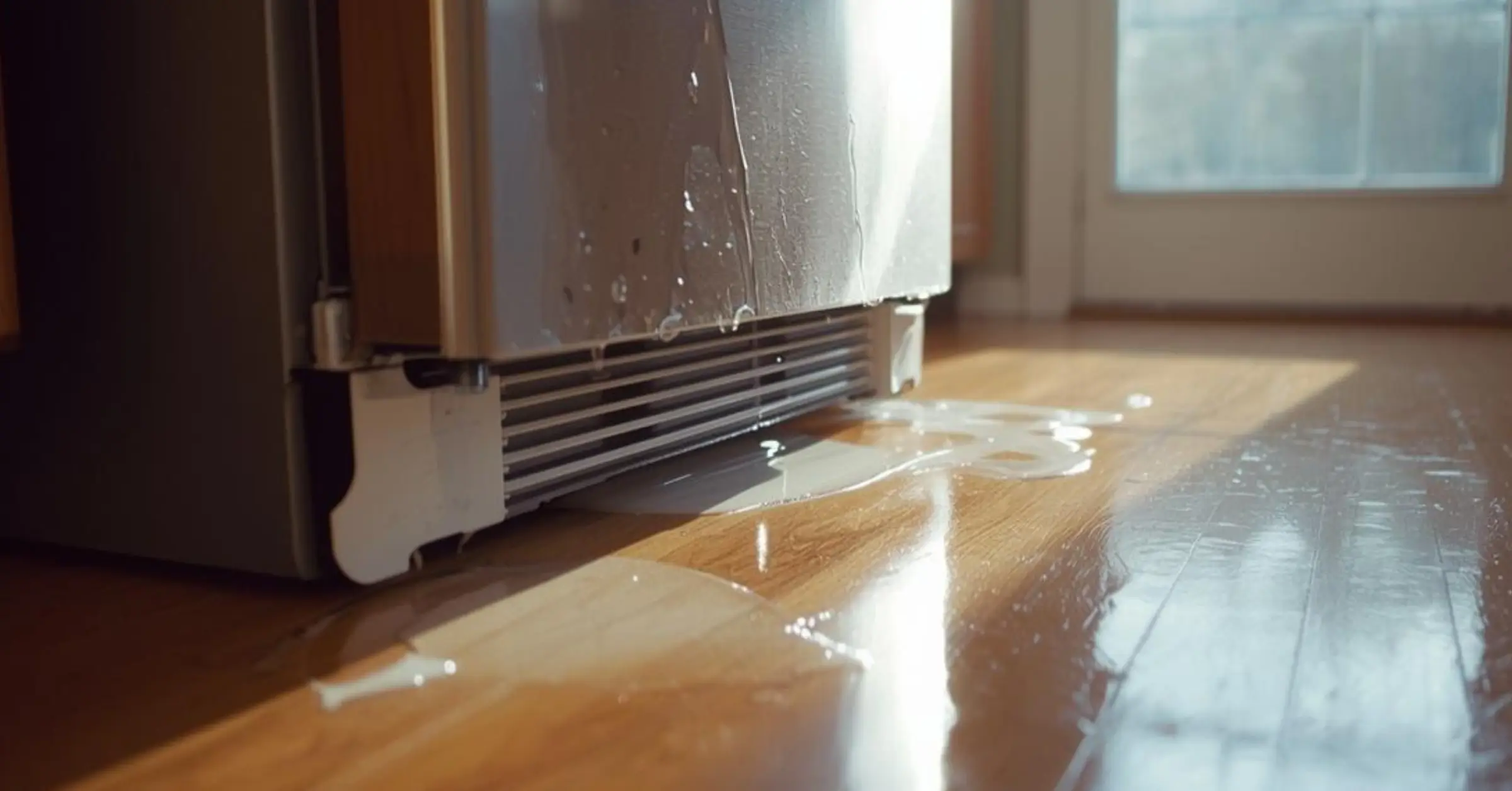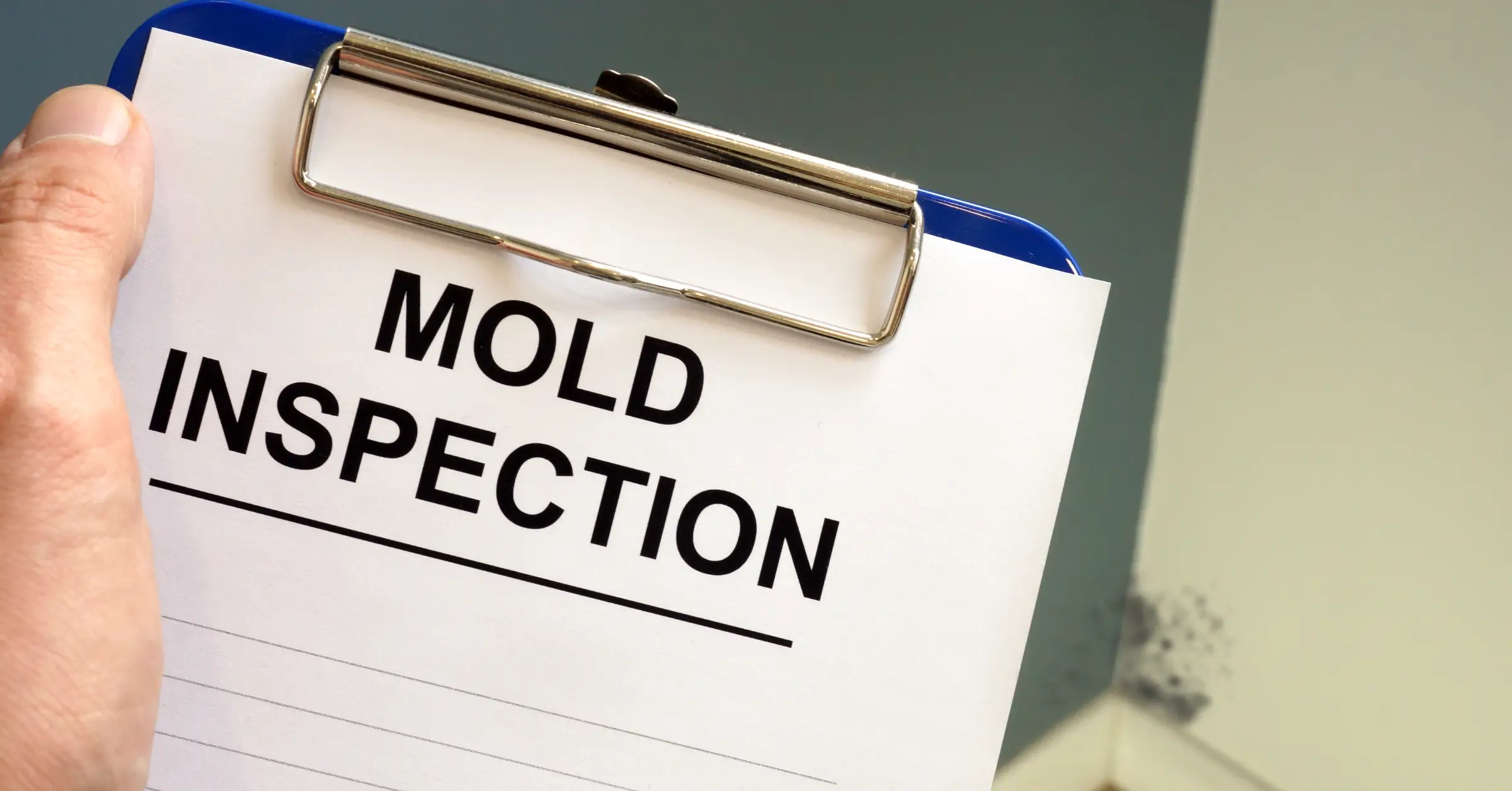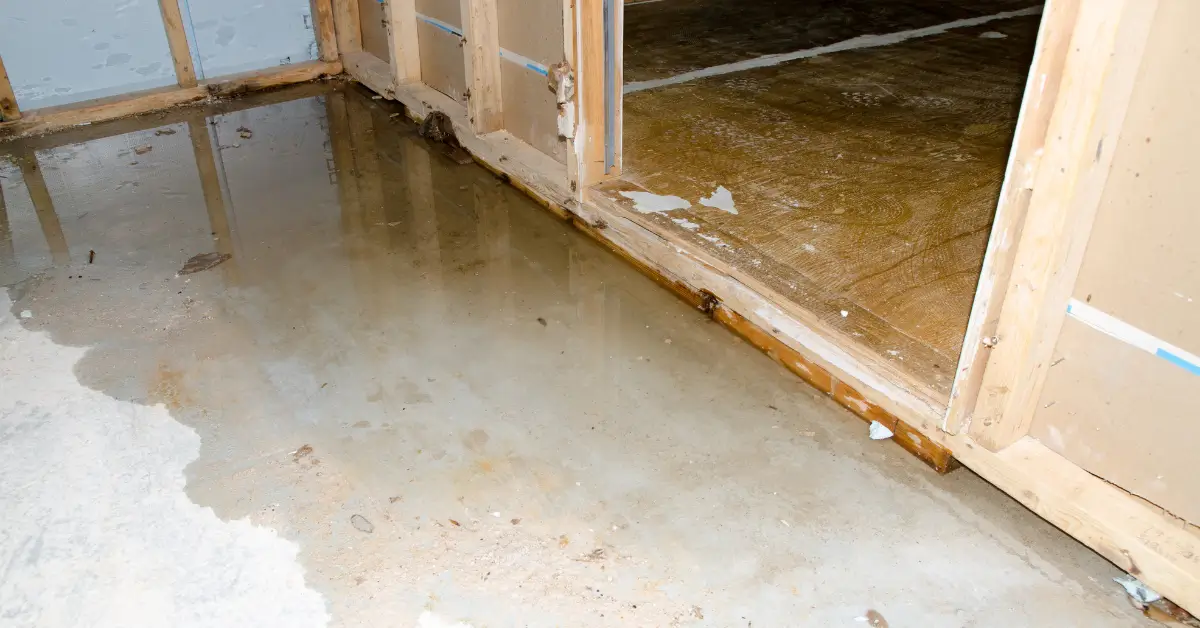Finding water pooling around your refrigerator can be scary. You might wonder what makes a refrigerator leak water and if it’s a sign of something serious. Don’t worry – most refrigerator water leaks have simple causes that you can understand and often fix yourself.
In this guide, we’ll walk you through the seven most common reasons what makes a refrigerator leak water. We’ll also share smart prevention tips that can save you from future headaches. At A/S General Contracting, we’ve helped hundreds of San Diego homeowners deal with water damage restoration issues, including those caused by appliance leaks.
What Makes a Refrigerator Leak Water: The Top 7 Causes
Understanding what makes a refrigerator leak water starts with knowing your fridge’s basic parts. Most water leaks happen because something blocks the normal water flow or a part gets damaged. Let’s look at each cause so you can spot the problem quickly.
1. Blocked or Clogged Defrost Drain
The most common answer to what makes a refrigerator leak water is a blocked defrost drain. This small drain sits at the bottom of your freezer and carries away water when your fridge defrosts itself automatically.
When food bits, ice, or dirt clog this drain, water can’t flow out properly. Instead, it backs up and spills onto your kitchen floor. You might notice water pooling under your refrigerator or inside the bottom of your fridge compartment.
To check if this is what makes a refrigerator leak water in your case, look for the small drain hole at the back of your freezer. If you see ice or debris blocking it, that’s likely your culprit. According to Whirlpool’s appliance experts, you can often clear minor clogs with warm water and a pipe cleaner.
2. Damaged or Misaligned Water Supply Line
If your refrigerator has an ice maker or water dispenser, a damaged water supply line could be what makes a refrigerator leak water. This plastic tube connects your home’s water supply to your fridge and can crack, loosen, or get damaged during moving.
These leaks usually happen behind or under your refrigerator. You might not notice them right away, but they can cause serious water damage to your floors and walls over time.
To check your water supply line, unplug your fridge and pull it away from the wall carefully. Look for any obvious cracks, loose connections, or wet spots around the water line. If you find damage, this is definitely what makes a refrigerator leak water in your situation.
3. Faulty Water Filter Issues
A bad or incorrectly installed water filter is another common reason what makes a refrigerator leak water. Water filters need regular replacement – usually every six months according to Energy Star guidelines.
When filters get old, they can crack or allow water to seep through damaged seals. Sometimes, homeowners install the wrong size filter or don’t twist it in completely. Both situations can cause water to drip from the filter area.
Check your water filter location (usually inside the fridge or in the bottom grille) and make sure it’s the right model for your refrigerator. If water drips near your filter, that’s likely what makes a refrigerator leak water in your home.
4. Ice Maker Problems That Cause Leaks
Ice makers are convenient, but they’re also a frequent source of leaks. What makes a refrigerator leak water from the ice maker? Usually, it’s loose connections, cracked water lines, or a faulty water inlet valve.
Ice makers use several water connections that can wear out over time. If your ice maker overflows, makes strange noises, or produces hollow-sounding ice cubes, these could be signs that water connections need attention.
You might also notice water pooling in your freezer or dripping from the ice maker area. Sometimes, what makes a refrigerator leak water from the ice maker is simply a jam in the ice chute that causes overflow.
5. Damaged Door Seals and Gaskets
Your refrigerator door seals (also called gaskets) keep cold air in and warm air out. When these rubber seals get damaged, torn, or dirty, they can’t do their job properly. This creates extra condensation inside your fridge, which can lead to water leaks.
What makes a refrigerator leak water due to bad door seals? Warm, humid air gets inside your fridge and creates more moisture than the drainage system can handle. This extra water then spills out onto your floor.
Test your door seals by closing the door on a dollar bill. If you can pull the bill out easily, your seals need replacement. Clean seals regularly and check for cracks or tears that could be what makes a refrigerator leak water.
Like how proper sealing prevents water issues in refrigerators, good home sealing prevents bigger problems. Learn more about how to find a water leak in other parts of your home.
6. Condensation Problems
Sometimes what makes a refrigerator leak water isn’t a broken part – it’s too much moisture in your kitchen. High humidity, frequent door opening, or placing hot food in your fridge can create excess condensation.
When your fridge works extra hard to remove this moisture, the drainage system can get overwhelmed. The result? Water drips onto your floor or pools inside your refrigerator.
This problem gets worse in summer or in kitchens with poor ventilation. If you notice more water around your fridge during hot, humid weather, condensation might be what makes a refrigerator leak water in your case.
7. Unlevel Refrigerator
An unlevel refrigerator might not seem like a big deal, but it can definitely be what makes a refrigerator leak water. When your fridge tilts too much in any direction, water can’t drain properly from the defrost system.
Instead of flowing to the drain pan where it should evaporate, water pools in the wrong places and eventually leaks out. This problem often happens after moving a refrigerator or during kitchen renovations.
Use a level tool on top of your fridge to check if it sits evenly. Most refrigerators should be slightly higher in the back to help doors close properly, but they shouldn’t lean dramatically to either side.
How to Prevent Future Refrigerator Water Leaks
Now that you know what makes a refrigerator leak water, let’s talk about keeping it from happening again. Prevention is always easier and cheaper than dealing with water damage after it occurs.
Regular Maintenance Schedule
Create a simple maintenance routine to prevent what makes a refrigerator leak water. Every three months, clean your defrost drain with warm water. Every six months, replace your water filter and check all visible water connections.
Once a year, pull your refrigerator away from the wall and inspect the water supply lines. Look for any signs of wear, cracks, or loose connections. According to the EPA’s appliance guidelines, regular maintenance extends appliance life and prevents problems.
Keep Your Fridge Level
Check that your refrigerator stays level, especially after any home repairs or cleaning. An unlevel fridge is a common cause of what makes a refrigerator leak water, but it’s easy to fix with adjustable feet.
Monitor Door Seals
Clean your door seals monthly with warm, soapy water. Remove any food debris that could prevent proper sealing. Replace damaged seals promptly to prevent the condensation issues that often lead to what makes a refrigerator leak water.
Watch Your Kitchen Humidity
Use exhaust fans when cooking and avoid putting hot leftovers directly into your fridge. High humidity makes your refrigerator work harder and increases the chances of what makes a refrigerator leak water becoming a problem.
When to Call a Professional
Sometimes, figuring out what makes a refrigerator leak water requires professional help. Call a technician if you notice water leaking from electrical components, if multiple water sources seem involved, or if DIY fixes don’t solve the problem.
Water and electricity don’t mix safely, so never attempt repairs around electrical parts of your refrigerator. If water damage has already affected your floors, walls, or cabinets, you might need professional water damage restoration services.
At A/S General Contracting, we often see homeowners who ignored small leaks until they became big problems. What starts as a simple answer to what makes a refrigerator leak water can turn into expensive floor replacement or mold remediation if water sits too long.
The True Cost of Ignoring Refrigerator Leaks
Understanding what makes a refrigerator leak water isn’t just about fixing an annoying puddle. Water leaks can damage your flooring, create slip hazards, and even lead to mold growth if left untreated.
Hardwood floors can warp when exposed to constant moisture. Tile grout can crack and allow water to seep underneath. Even worse, water can travel behind appliances and damage drywall or insulation where you can’t see it.
We’ve helped homeowners who thought they had a simple leak, only to discover extensive damage behind their kitchen walls. Learning what makes a refrigerator leak water and fixing it quickly saves money and prevents bigger headaches later.
Smart Prevention Tips from the Experts
After years of helping homeowners with water damage issues, we’ve learned some insider tricks for preventing what makes a refrigerator leak water:
First, take photos of your water line connections before moving your refrigerator. This helps you reconnect everything correctly and spot any changes that might indicate what makes a refrigerator leak water.
Second, keep your refrigerator manual handy. Many people throw these away, but they contain specific information about your model’s water systems and maintenance requirements.
Third, invest in water leak detection devices for your kitchen. These small sensors can alert you to moisture before it becomes a major problem. They’re especially useful for catching slow leaks that might not create obvious puddles right away.
Remember, just like drying out a house after water damage, preventing water problems is always better than fixing them after they happen.
Energy Efficiency and Water Leaks
What makes a refrigerator leak water can also affect its energy efficiency. When door seals fail or the defrost system works overtime due to blockages, your refrigerator uses more electricity.
According to FTC energy guidelines, a poorly maintained refrigerator can use 35% more energy than a well-maintained one. Fixing what makes a refrigerator leak water often improves energy efficiency too.
If your refrigerator is over 15 years old and having frequent leak problems, consider replacement. Modern refrigerators have better drainage systems and more reliable water connections that reduce the chances of what makes a refrigerator leak water becoming an ongoing issue.
Conclusion: Stay Ahead of Refrigerator Water Leaks
Understanding what makes a refrigerator leak water helps you catch problems early and prevent expensive damage. Most causes are simple to identify and often fixable with basic maintenance.
Remember the seven main culprits: blocked defrost drains, damaged water supply lines, faulty filters, ice maker problems, bad door seals, condensation issues, and unlevel positioning. Regular maintenance and quick action when you spot problems will keep your kitchen dry and your refrigerator running efficiently.
If you discover water damage around your refrigerator or need help with any water-related issues in your San Diego home, don’t wait. Contact A/S General Contracting for professional water damage assessment and repair. We’re here to help protect your home from what makes a refrigerator leak water and other moisture problems.


